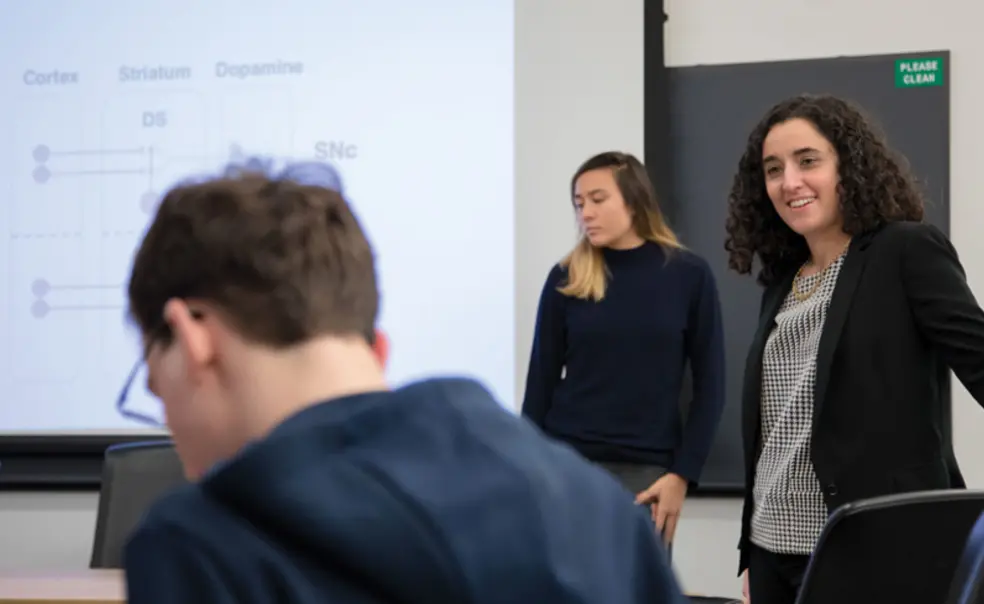Neuroscience Researcher Uses Award to Study Responses to Stress
As a 2024 Howard Hughes Medical Institute Investigator, Ilana Witten ’02 plans to further her lab’s research in brain systems and circuits
Why do some people react by coping resiliently with adversity, while others might want to sit in a dark corner for days? This is one question neuroscience professor Ilana Witten ’02 hopes to research as a 2024 Howard Hughes Medical Institute (HHMI) Investigator.
The award aims to equip scientists to push their research further, providing each recipient about $11 million in support throughout seven years, according to the institute. These researchers study across many scientific disciplines, including cancer biology, computational biology, physiology, and plant sciences. More than 30 current or former HHMI recipients have won the Nobel Prize.
Witten, a researcher in the Princeton Neuroscience Institute and principal investigator at the Witten Lab, focuses on understanding how our brains process stress. This grant means that she’ll be able to further her lab’s research in brain systems and circuits. She says, thanks to this opportunity, she can think on a much longer time scale to follow her passions and creativity. “It’s just a really exciting opportunity to be given that chance,” she says.
Witten first became interested in investigating the brain and its behavior around decision making while taking a neuroscience class at Princeton. “I was very excited,” she says. “I never looked back.” She was captivated by the idea that we could study thoughts. After graduating from Princeton in 2002, she got her Ph.D. in neuroscience at Stanford. Witten became a professor at Princeton in 2012.
Witten is interested in our drive to seek rewards and how that shapes our behavior. For example, if someone achieves a goal or gets a reward, they want to figure out what to do to get that positive outcome in the future. If a person got a good grade on a test, that might make them think they should study in the exact same way, Witten says.
But practically speaking, everyone responds differently to the same experience, including stressful situations. To help better understand this, her lab is studying what animals learn when presented with stress.
“Some are learning how to cope with the stress, and others are just learning avoidance behavior.”
Ilana Witten ’02
For example, mice in certain situations show behavior like helplessness or symptoms similar to anxiety. They may be introduced to a stressful scenario, Witten says, via interaction with another mouse that is aggressive. Mice who are in a stressful environment might become socially avoidant, showing what, she says, someone might call depression in a person. Others might seem fine. The difference between mice who may no longer want to play with animals, or seek out a sugary drink, can show what they are learning from stress.
“Some are learning how to cope with the stress, and others are just learning avoidance behavior,” she says.
She hopes this will eventually extrapolate to helping humans — if we can better understand how animals’ brain circuitry responds to stress, it might help researchers better understand how to help individuals suffering from mental illnesses like anxiety and depression.
The funding that the HHMI grant provides will allow her to focus more fully on the research, she says, as opposed to frequently planning where the next funding will come from. Typically, labs are funded by smaller grants that are renewable in much shorter time periods; it can almost seem like researchers are constantly thinking about applying for and monitoring new funding sources.
Now, she says, “You can focus more on being creative and thinking about what you’re most passionate about.”












No responses yet